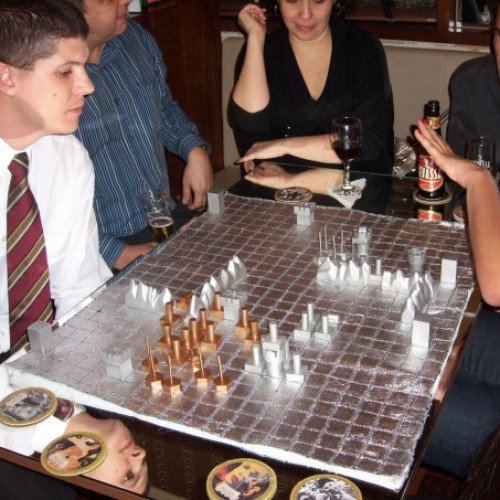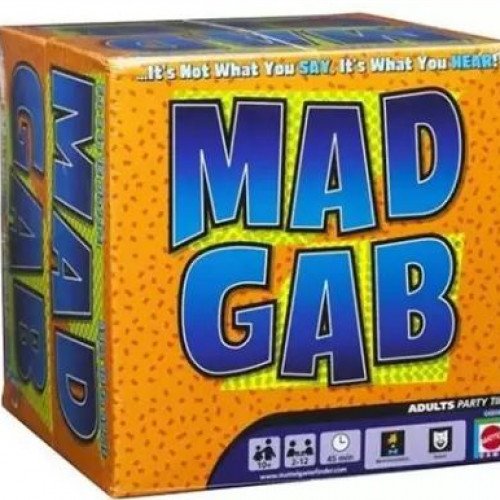A GAME OF WAR VS MAD GAB

A GAME OF WAR
A Game of War is a book by Guy Debord and Alice Becker-Ho that illustrates a game devised by Debord by giving a detailed account of one of their table-top conflicts. It was first published in French as Le Jeu de la Guerre in 1987, but unsold copies were later pulped in 1991, along with other books by Debord, at his insistence when he left his publisher Champ libre. The book was reissued in 2006, with an English translation published by Atlas Press in 2008. In his 1989 book Panegyric, Guy Debord remarked: So I have studied the logic of war. Indeed I succeeded long ago in representing its essential movements on a rather simple game-board… I played this game, and in the often difficult conduct of my life drew a few lessons from it — setting rules for my life, and abiding by them. The surprises vouchsafed by this Kriegspiel of mine seem endless; I rather fear it may turn out to be the only one of my works to which people will venture to accord any value. As to whether I have made good use of its lessons, I shall leave that for others to judge. Apart from the books which contain the game, free online versions of the game are available. London based group, Class Wargames have reproduced A Game of War and taken it on a campaign around the globe, at Belo Horizonte, pictured above, St. Petersburg and a variety of other locations.
Statistics for this Xoptio

MAD GAB
Mad Gab is a game created by Terry White in which there are at least two teams and 2–12 players. Each team has two minutes to sound out three puzzles. The puzzles, also known as mondegreens, contain small words that, when put together, make a word or phrase. For example, "These If Hill Wore" when pronounced quickly sounds like "The Civil War". Another example would be "Eye Mull of Mush Sheen" quickly spoken it sounds like "I'm A Love Machine". There are two levels of difficulties: easy and hard. The faster the puzzles are answered, the more points the players score. This game uses phonetics, which is a branch of linguistics. This game is a test for the human brain to process sounds based on simpler English-written sounds into a meaningful word or phrase. The game is designed where a person would not be able to decode the meaning of the phrase unless spoken out loud and listened; reading the phrase silently will not allow the player to decode the meaning because sounds would have to be encoded into meaningful English words.